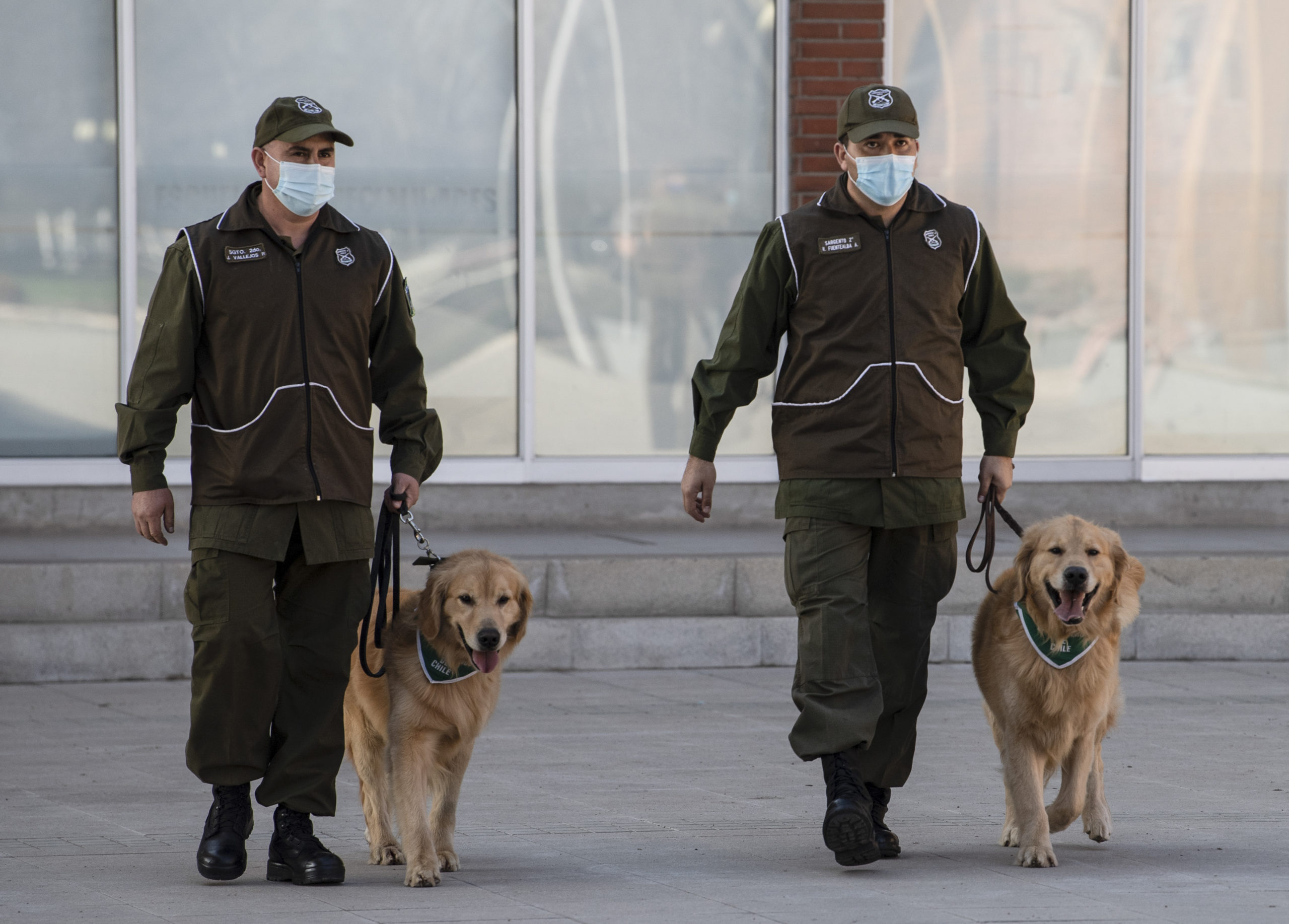Chilean police train dogs to sniff out COVID-19

Members of the Chilean Police Canine Training team walk two Golden Retriever dogs before the beginning of their training session aimed to detect people infected with coronavirus COVID-19. (AFP)
SANTIAGO, Chile–Police in Chile are training dogs to detect people that may be infected with the novel coronavirus by sniffing their sweat.
The dogs — three golden retrievers and a labrador — are between the ages of four and five. Until now they have been used to sniff out illicit drugs, explosives and lost people, police say.
The training program is a joint effort by Chile’s national police, the Carabineros, and specialists at the Universidad Catolica de Chile.
It follows in the footsteps of similar efforts taking place in France, said Julio Santelices, head of the police school of specialties.
Dogs have 330 million olfactory receptors, and an ability to detect smells 50 times better than humans. They can also smell 250 people per hour.
“The virus has no smell, but rather the infection generates metabolic changes” which in turn leads to the release of a particular type of sweat “which is what the dog would detect,” Fernando Mardones, a Universidad Catolica professor of veterinary epidemiology, told AFP.
According to Santelices, tests in Europe and Dubai shown a 95 percent efficiency rate in canine detection of COVID-19 cases.
Medical Detection Dogs, a British charity set up in 2008 to harness dogs’ sharp sense of smell to detect human diseases, also started training canines to detect COVID-19 in late March.
Four-legged biodetectors
“The importance of this scientific study is that it will allow dogs to become biodetectors, and detect this type of illness at an early stage,” Santelices told AFP.
Mardones said that there is already evidence that dogs can detect diseases such as tuberculosis, parasite infections, and even early stages of cancer.
Canines can detect subtle changes in skin temperature, potentially making them useful in determining if a person has a fever.
According to the World Organisation for Animal Health, the possibility of contagion from a dog is remote.
The canine trainees began their education one month ago, and will use sweat samples taken from COVID-19 patients being treated at the Universidad Catolica’s clinic.
The experts hope to have the dogs trained and working in the field by August.
The plan is to deploy them with an officer in pedestrian-heavy areas such as train stations and airports, and at health control stations.
Chile on Wednesday reported 1,719 new cases of COVID-19, bringing the total of cases since March 3 to 336,402.
The viral infection has killed more than 11,000 people, according to the most recent Health Ministry official report, which includes “probable” COVID-19 victims.
For more news about the novel coronavirus click here.
What you need to know about Coronavirus.
For more information on COVID-19, call the DOH Hotline: (02) 86517800 local 1149/1150.
The Inquirer Foundation supports our healthcare frontliners and is still accepting cash donations to be deposited at Banco de Oro (BDO) current account #007960018860 or donate through PayMaya using this link.